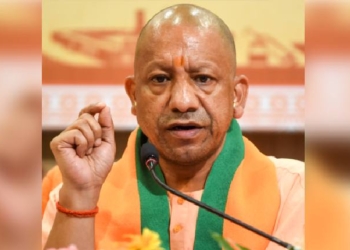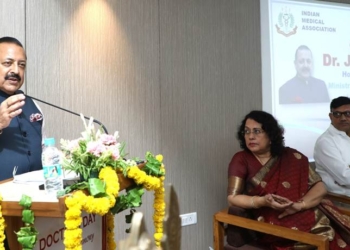New Delhi: The Supreme Court on Thursday said Jallikattu is a type of bovine sports, which is going on in Tamil Nadu for at least the last few centuries as it upheld the validity of amendment act of Tamil Nadu, saying the act is not in pith and substance, to ensure survival and well-being of the native breeds of bulls.
The top court said it does not think Article 14 of the Constitution can also be invoked by any animal as a person.
In a unanimous judgment, a five-judge bench headed by Justice K.M. Joseph said: “The Tamil Nadu Amendment Act is not a piece of colourable legislation. It relates, in pith and substance, to Entry 17 of List III of Seventh Schedule to the Constitution of India. It minimises cruelty to animals in the concerned sports and once the Amendment Act, along with their Rules and Notification are implemented, the aforesaid sports would not come within the mischief sought to be remedied by Sections 3, 11(1) (a) and (m) of the 1960 Act.”
“While the protection under Article 21 has been conferred on a person as opposed to a citizen, which is the case in Article 19 of the Constitution, we do not think it will be prudent for us to venture into a judicial adventurism to bring bulls within the said protected mechanism.”
The bench said: “We do not think Article 14 of the Constitution can also be invoked by any animal as a person. While we can test the provisions of an animal welfare legislation, that would be at the instance of a human being or a juridical person who may espouse the cause of animal welfare.”
The apex court also upheld the validity of amendment acts of Maharashtra and Karnataka which allowed bullock-cart races and buffalo racing sport ‘Kambala’, saying they are “valid legislations”.
The bench, also comprising Justices Ajay Rastogi, Aniruddha Bose, Hrishikesh Roy, and C.T. Ravikumar, said: “Our decision on the Tamil Nadu Amendment Act would also guide the Maharashtra and the Karnataka Amendment Acts and we find all the three Amendment Acts to be valid legislations.”
The bench noted that Jallikattu is a type of bovine sports and it is satisfied on the basis of materials disclosed before it, that it has been going on in Tamil Nadu for at least the last few centuries.
“But whether this has become an integral part of Tamil culture or not requires religious, cultural and social analysis in greater detail, which in our opinion, is an exercise that cannot be undertaken by the judiciary. The question as to whether the Tamil Nadu Amendment Act is to preserve the cultural heritage of a particular state is a debatable issue which has to be concluded in the House of the People,” it said, adding that this ought not be a part of judicial inquiry.
The bench said that since the legislative exercise has already been undertaken and jallikattu has been found to be part of cultural heritage of Tamil Nadu, “we would not disrupt this view of the legislature”.
“We do not accept the view reflected in the case of A. Nagaraja that the performance of Jallikattu is not a part of the cultural heritage of the people of the state of Tamil Nadu. We do not think there was sufficient material before the court for coming to this conclusion. In the Preamble to the Amendment Act, Jallikattu has been described to be part of the culture and tradition of Tamil Nadu,” it said.
The bench said the amendment having received Presidential assent, “we do not think there is any flaw in the State action. Jallikattu as bovine sports have to be isolated from the manner in which they were earlier practiced and organising the sports itself would be permissible, in terms of the Tamil Nadu Rules”.
It said the Tamil Nadu Amendment Act is not in pith and substance, to ensure survival and well-being of the native breeds of bulls and the said act is also not relatable to Article 48 of the Constitution.
The top court noted that The Prevention of Cruelty to Animals (Tamil Nadu Amendment) Act, 2017, The Prevention of Cruelty to Animals (Maharashtra Amendment) Act, 2017 and The Prevention of Cruelty to Animals (Karnataka Second Amendment) Act, 2017 were enacted by the respective state legislatures and had received presidential assent.
In December last year, the apex court had reserved its judgment on a clutch of petitions challenging Tamil Nadu and Maharashtra laws allowing bull-taming sport ‘jallikattu’ and bullock cart races.
The Tamil Nadu government, in a written response, had said jallikattu is not merely an act of entertainment, rather an event with great historic and cultural value.
In May 2014, a two-judge bench of the apex court, in Animal Welfare Board of India v A. Nagaraja, banned the use of bulls for jallikattu events in the state, and bullock cart races across the country. The central law, The Prevention of Cruelty to Animals Act, 1960, was amended by Tamil Nadu to allow jallikattu.
(IANS)
















